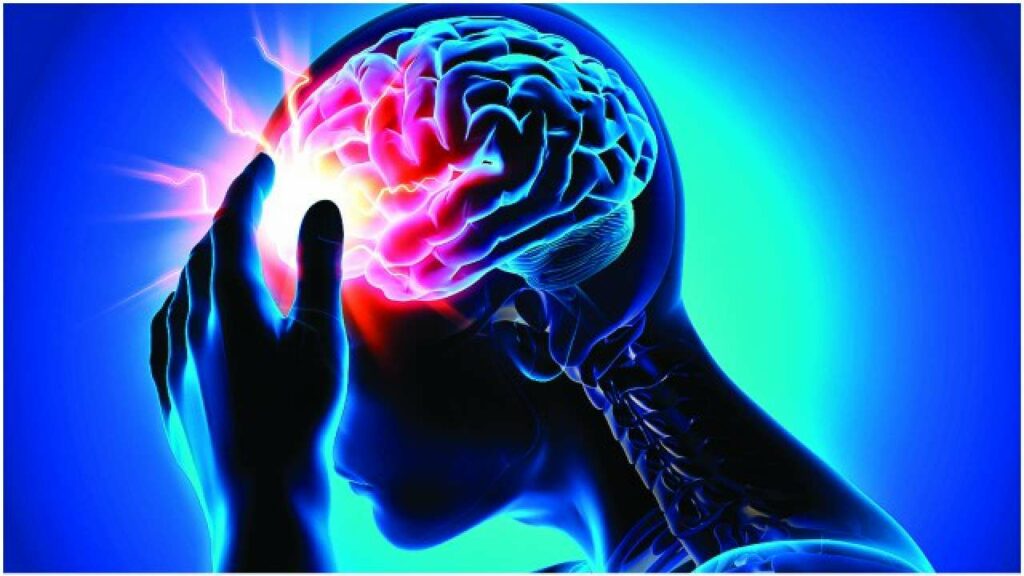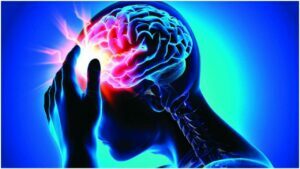
How to say Stroke in Spanish?
¿Cómo se dice stroke en español? Stroke in Spanish translation: derrame cerebral.
“Stroke” in Spanish can be translated as “accidente cerebrovascular” or “ACV” for short. Here’s a brief article about the term “accidente cerebrovascular” in Spanish.
- Use “accidente cerebrovascular” to refer to a medical condition
In Spanish, “accidente cerebrovascular” is the term used to refer to a medical condition commonly known as a “stroke” in English. It is a serious condition that occurs when blood flow to the brain is disrupted, causing brain cells to die. For example:
- Mi abuelo tuvo un accidente cerebrovascular la semana pasada. (My grandfather had a stroke last week.)
- Use “ACV” as an abbreviation
In Spanish, “ACV” is a common abbreviation for “accidente cerebrovascular.” It is often used in medical settings or in informal conversations. For example:
- El paciente llegó al hospital con síntomas de ACV. (The patient arrived at the hospital with symptoms of stroke.)
- Use proper pronunciation
When saying “accidente cerebrovascular” or “ACV,” it’s important to use proper pronunciation. Here’s how they sound:
- “Accidente cerebrovascular” – ahk-see-DEHN-teh seh-REH-broh-boh-LAR
- “ACV” – ah-seh-veh
In conclusion, “accidente cerebrovascular” or “ACV” is the Spanish translation for “stroke.” Remember to use proper pronunciation when speaking Spanish.
Sentences with the word stroke in Spanish:
| William Crawford, un esclavista, sufrió un derrame cerebral que lo dejó incapacitado. | – | William Crawford, a slaver, suffered a stroke that left him incapacitated. |
| Dolencias relacionadas con el estrés, pueden conducir a un derrame cerebral. | – | Stress-related ailments can lead to a stroke. |
| La tasa de mortalidad por derrame cerebral ha disminuido en estos años para todas las razas. | – | The death rate from stroke has decreased in these years for all races. |
| El hombre falleció el viernes de un derrame cerebral. | – | The man died Friday of a stroke. |
| He tenido un episodio, lo que llaman un derrame cerebral, aún estoy en recuperación. | – | I’ve had an episode, what they call a stroke, I’m still in recovery. |
| Tras el derrame cerebral, el protagonista se desespera y piensa que su existencia es absurda. | – | After the stroke, the protagonist despairs and thinks that his existence is absurd. |
| Cuando empezó a sentir dificultad para hablar mandó a llamar a urgencias porqué estaba teniendo un derrame cerebral. | – | When he began to have difficulty speaking he sent for the emergency room because he was having a stroke. |
| El traumatismo cráneo encefálico provocó un derrame cerebral. | – | The head trauma caused a stroke. |
| Generalmente el derrame cerebral es causado la obstrucción de una arteria. | – | Stroke is usually caused by the blockage of an artery. |
| Estos agentes patógenos pueden provocar un derrame cerebral. | – | These pathogens can cause a stroke. |
| A causa del derrame cerebral que sufrí me han declarado ciego y me registraron en la Asociación de Ciegos. | – | Because of the stroke I suffered, I have been declared blind and registered with the Association of the Blind. |
| En las autopsias realizadas a las ballenas, se descubrió que murieron de derrame cerebral. | – | In autopsies performed on the whales, it was found that they died of stroke. |
| La cuenta de la energía, cuando llegó, por poco me causa un derrame cerebral. | – | The energy bill, when it came, almost gave me a stroke. |
| Hacer ejercicios y una dieta adecuada es bueno para prevenir el derrame cerebral. | – | Exercising and proper diet is good for preventing stroke. |
| Las personas con mayor ritmo de estrés son las más propensas a tener un derrame cerebral. | – | People with the highest rate of stress are the most likely to have a stroke. |
| En la facultad de medicina, asistí a una cirugía por derrame cerebral. | – | In medical school, I attended surgery for a stroke. |
| Lo más difícil del derrame cerebral, es la recuperación del individuo. | – | The most difficult thing about a stroke is the recovery of the individual. |
| Fortunato, rojo como un pollo estaba a dos pasos del derrame cerebral. | – | Fortunato, red as a chicken, was two steps away from a stroke. |
| Tras la lectura de la acusación, dicen que le originó el derrame cerebral que lo llevó al sepulcro. | – | After reading the accusation, they say that he caused the stroke that took him to the grave. |
| Murió el Fraile de un derrame cerebral, cuando supo que había perdido más de veinte mil duros. | – | The Friar died of a stroke, when he learned that he had lost more than twenty thousand pesos. |
| Todos preguntaban, ¿Se había muerto de amor o de un derrame cerebral? | – | Everyone asked, had he died of love or a stroke? |
| Después de escrito el libro le dio un derrame cerebral fulminante. | – | After writing the book he had a sudden stroke. |
| El derrame cerebral hay quien lo compara con un terremoto en el organismo. | – | Some people compare a stroke to an earthquake in the body. |
| Goyita escapó con un dependiente y esa es la causa del derrame cerebral del padre. | – | Goyita ran away with a clerk and that is the cause of his father’s stroke. |
| Los ricos comían y bebían a sus anchas, aceptando la gota y el derrame cerebral como enfermedades honorables. | – | The rich ate and drank to their heart’s content, accepting gout and stroke as honorable diseases. |
| Por un momento temimos que le fuera a dar un derrame cerebral. | – | For a moment we feared that he was going to have a stroke. |
| Sufrió un derrame cerebral y poco después se extinguía en los brazos de su dueño. | – | He suffered a stroke and soon after died in the arms of the owner of him. |
| Apenas se metió en el agua acabado de comer y le dio un derrame cerebral. | – | He just got in the water after eating and he had a stroke. |
| Mi temperamento me hace temer por un derrame cerebral. | – | My temper makes me fear a stroke. |
| En mil setecientos catorce su madre sufrió un derrame cerebral, que la paralizó parcialmente. | – | In 1714 her mother suffered a stroke, which partially paralyzed her. |
Symptoms of a stroke in Spanish and English:
| La confusión o dificultad para la comprensión | – | Confusion or difficulty understanding |
| Dificultad para hablar | – | Difficulty speaking |
| Los mareos o problemas de coordinación | – | Dizziness or coordination problems |
| La pérdida de consciencia | – | Loss of consciousness |
| Los problemas con movimientos o al caminar | – | Problems with movement or walking |
| Las convulsiones | – | The seizures |
| Los dolores de cabeza severos | – | The severe headaches |
| La pérdida de la visión | – | Loss of vision |
| La debilidad o entumecimiento de la cara y el cuerpo, especialmente en uno de los lados | – | Weakness or numbness of the face and body, especially on one side |

